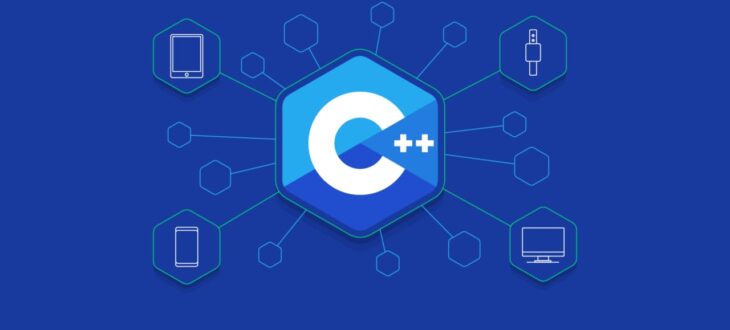C++ is a powerful and flexible programming language used in a wide variety of fields, from developing operating systems and games to creating high-load server applications. If you’ve decided to learn this language, you’ve likely encountered the need to go through a long and sometimes confusing journey. However, with the right roadmap, you can move forward confidently, without losing your bearings or getting lost in the sea of information. This article will help you understand how to stay on track and effectively learn C++.
Why C++ Is an Important Choice for Beginners
For many beginners, choosing a programming language can become a real headache. However, if you want to master not only the basics of programming but also learn to work with high-level tasks, C++ is an excellent choice. The language offers vast opportunities for learning and career growth. Unlike many modern languages, it gives you full control over system resources, which is especially important for fields like game development, system programming, as well as working with algorithms and data structures.
It’s also worth noting that C++ is widely used in other areas, such as graphics development, artificial intelligence, and even online entertainment, like creating platforms for online casinos. Understanding how basic C++ concepts work can be useful even if you want to try your hand at developing highly interactive applications for such domains.
If you’re looking for reliable online casinos with a variety of games from leading global developers, visit slovenskecasino.net. Here you will find only trustworthy platforms offering a wide range of gaming options and exciting opportunities for everyone. Each player can find a casino with attractive conditions and bonus programs that will make your gaming experience even more exciting and profitable.
Steps on the Path to Mastering C++
Master the Basics of Programming
Before diving into C++, it’s important to understand the basic principles of programming. Without this knowledge, it will be hard to comprehend more complex aspects of the language. At this stage, you should familiarize yourself with concepts such as variables, conditional statements, loops, and functions. If you have no experience with other programming languages, start with simple courses or video materials to understand how the programming process works.
Learn C++ Syntax
C++ is known for its complex and flexible syntax. For beginners, it’s important to become familiar with the fundamental constructs of the language, such as operators, functions, classes, and objects. At this stage, you should also study fundamental concepts like pointers, dynamic memory, data structures, and classes. Gradually, you can dive deeper into the intricacies of the syntax: operator overloading, inheritance, and polymorphism.
It’s very important to learn how to work with different data types and basic data structures—arrays, lists, and strings. Understanding their internal structure and features will help you write more efficient and optimized code.
Practice and Writing Your First Code
Once you’ve grasped the basic concepts of C++, it’s time to start practicing. It’s essential not only to read theoretical material but also to try writing code in practice. Start with simple programs like a calculator, a program for sorting numbers, or solving basic mathematical tasks. This approach will help you reinforce your knowledge and see in practice how the basic concepts of the language work.
Solving Problems and Working on Projects
To progress more quickly, start solving problems on platforms such as Codeforces or LeetCode. This will help you learn how to work with algorithms and data structures. Once you feel confident, move on to more complex projects like creating simple games or developing small utilities. Tasks in real projects will require more knowledge and patience from you, but they help you gain experience and develop skills for working with real-world problems.
Understanding Advanced Concepts
Once you’ve mastered the basics, it’s time to move on to more advanced aspects of C++. This is where the real adventure begins! Learning templates, multitasking, working with threads, and a deeper understanding of memory management—these are the areas that will open doors for high-level development.
Templates and Code Generation
Templates are an important and powerful concept in C++ that allows you to write universal functions and classes. Mastering this tool will enable you to create more flexible and efficient code. If you want to work on large projects, studying templates is essential.
Working with Multitasking and Threads
Understanding how multitasking works in C++ is a critical aspect of writing efficient and scalable applications. Parallel computing is becoming more and more in demand, and skills in working with threads and asynchronous code will open new horizons for you.
Resources for Advanced Learning
To successfully master C++, it’s essential to continue learning and deepen your knowledge. There are many online courses, textbooks, and forums where you can ask questions, get help, and find new ideas for your projects. It’s recommended to regularly read articles, books, and blogs written by experienced developers.
Books and Online Courses
If you want to dive deeper into the theoretical part, pay attention to classic books such as “C++ Primer” by Stanley B. Lippman or “Effective C++” by Scott Meyers. These resources will help you not only learn the basics but also understand deeper aspects of the language. Online courses from platforms like Coursera, Udemy, and edX can also be an excellent aid in your learning.
Conclusion
Learning C++ is a long but exciting journey. At first, the language may seem complicated and confusing, but over time, you’ll come to realize its true power and flexibility. Remember that it’s not just about studying theory but also about practicing, solving problems, and working on projects. Use a variety of resources for deeper learning, and don’t be afraid to make mistakes—each step on the path to mastery brings you closer to your goal.
